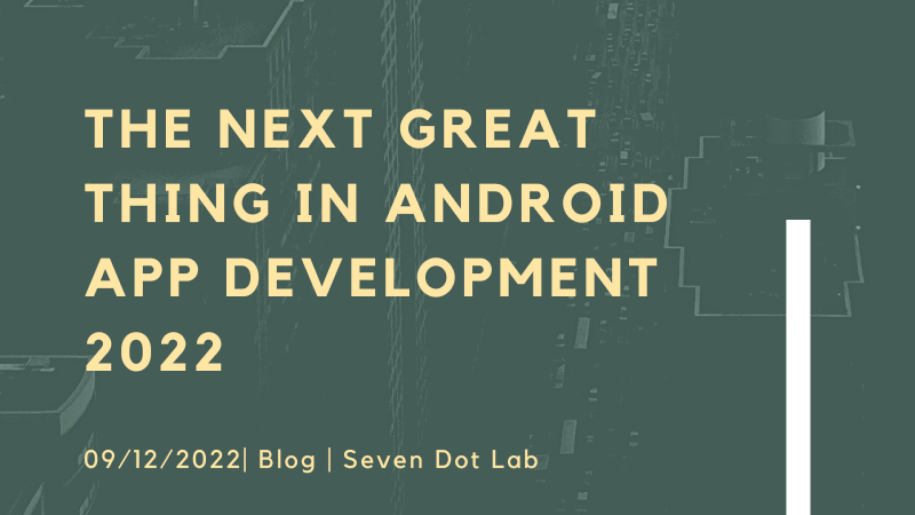I’ve been using Kotlin for almost a year, and there’s no doubt that it’s the future of Android app development. It’s a language designed to make your apps easier to write and more maintainable. Using Kotlin makes you more productive as an Android developer, which is important because developers are always busy with lots of other duties like fixing bugs or learning new APIs. I can’t think of any other language that has had such an impact on my daily work as Kotlin has in just one year — and it’s only going to get better from here!
Kotlin
Kotlin is a statically-typed programming language that runs on the Java Virtual Machine (JVM), so it’s 100% interoperable with existing Java code. It also offers some nice syntactic sugar over that JVM, which makes writing apps significantly more readable than in C++ or other languages.
Kotlin is developed by JetBrains, who also created Swift for Apple’s iOS devices. Unlike Swift though, Kotlin has been around since 2011—so if you’ve already written some Android apps in C or Java before moving over to Kotlin, then your experience will be similar but not the same!
Android Jetpack
Android Jetpack is a set of features that improve the performance and user experience of your app on Android devices.
Android Jetpack consists of three components:
- Navigation library (or support library) – This component makes it easy for you to build navigation through a series of views and activities. It provides tools for creating custom views, animations, and transitions between screens; handling orientation changes; as well as implementing push notifications through the platform’s built-in messaging infrastructure.
- Activity lifecycle manager – The activity lifecycle management system helps you manage your application’s life cycle by providing hooks into system events that occur at certain points during its execution cycles such as when an activity is created or destroyed based on user interaction with other applications on the device or any other external factors such as network connectivity issues etcetera…
Instant Apps
Instant apps are a new feature in Android P and allow developers to create an app that doesn’t need to be installed on the device. This allows you to create an app that can run in the background and then be activated (or deactivated) by using your phone’s notifications or via other means.
Instant Apps are also known as “web apps” because they allow you to use your mobile browser as if it were a native mobile application, without requiring any installation process or user registration.
Architecture Components
Architecture Components is a library of components that you can use to build your app.
Architecture Components has many benefits, including:
- They work well with third-party libraries like Butterknife and Glide. This means you can use them in your own project without having to copy their source code or figure out how they fit into your app’s architecture.
- It’s easy to customize the look and feel of your app using these components; if you want something new, all it takes is changing one file!
- It’s easy to test individual components individually instead of having all the functionality built into one large class – which makes testing easier than ever before!
Gradle Assembles with Kotlin Scripts
In Kotlin, you can write code in a more concise and readable way than Java. The syntax is similar to that of Swift or Objective-C and allows for the creation of libraries and Android apps as well.
Kotlin scripts are written in Kotlin and can be used to create Gradle Assembles, which is basically an assembly file (.aar) that contains all your dependencies for building your project. It also includes bytecode for resources such as drawables and layouts that you need for your app’s UI (User Interface). An example of a library written with Kotlin would be [Hello World](https://github.com/kotlincore/hello-world), which shows how easy it is to create one using this new language!
Kotlin is the next big thing in Android app development.
Kotlin is a programming language that was developed by JetBrains and introduced in 2011. It’s been gaining popularity ever since, and it’s now used by Google itself to build its own products. In addition to being more concise and readable than Java, Kotlin has many features that make it ideal for mobile apps:
- You don’t need to declare all variables at the start of your code block—you can do this later in the code if necessary (e.g., “let i = 3”).
- You have access to local functions/variables using their fully qualified names: if you want to use f() then you must write f instead of just f()—no more “f” everywhere!
Conclusion
Kotlin is the next big thing in Android app development. It’s been around for a while, but it has recently gained popularity due to its strong support for functional programming. Kotlin makes it easy to write code that can be compiled down into bytecode and run on any platform with just one line of code. This means that you can build apps that take advantage of Kotlin’s features without having to learn how they work or how they might change in future versions of Android—and still use all the great tools that come with being an Android developer!
